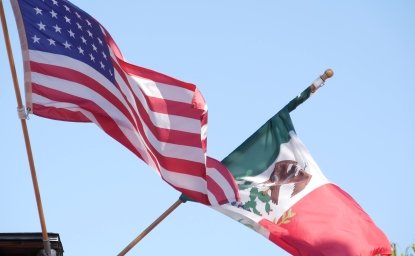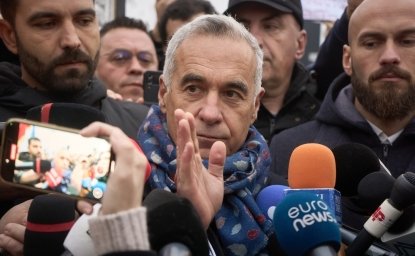Digging up Orthodoxy
Brazil Institute Global Fellow Monica de Bolle gives her take on Dilma Roussef's economic team.
Brazil Institute Global Fellow Monica de Bolle gives her take on Dilma Roussef's economic team.
“When the Apocalypse comes, you want to know an archaeologist, because we know how to make fire, catch food, and create hill forts”. The citation is from Marilyn Johnson’s book, Lives in Ruins, a delightful read about contemporary archaeologists, far from the stereotypical Indiana Jones of Hollywood fame, but nonetheless exotic and profoundly interesting.
When the Apocalypse comes, President Dilma Rousseff would most certainly wish to know an orthodox economist – a creature every bit as exotic as an archaeologist in contemporary Brazilian policy circles – for they know how to put out fiscal fires, find the right path to adjustment, and build a fort strong enough to prevent the ultimate downfall, Brazil’s loss of its investment grade rating. As it happens, President Dilma did have an orthodox economist hidden in her address book, and he has just been made Finance Minister.
Much has been said of Mr. Joaquim Levy in recent days. A policymaker by choice and design, he joins the helm of the new economic team in time to stave off the worst-case scenario that had been rapidly building up in recent weeks. Despite the unnecessary delay in announcing Levy – as well as Nelson Barbosa for the Planning Ministry, and Alexandre Tombini as the continuing head of the Central Bank – the official appointments were received with noticeable relief. Remarks made by the new triumvirate following the announcement were equally welcomed. Mr. Levy did what many expected of him: he set out a clear adjustment path for the next few years, highlighting that the government will pursue a primary surplus target of 1.2% of GDP for 2015. Coming from an expected dismal result for 2014 – possibly the first primary deficit in almost two decades – this is no small feat. From then onwards, the new Finance Minister expects to deliver primary surpluses of some 2% of GDP, which would help bring down Brazil’s gross public debt to GDP ratio, currently running above 60%.
The emphasis on gross debt should not be overlooked or downplayed. Until recently, Brazilian authorities chose to focus on falling net debt ratios to argue that fiscal weakness was much less worrisome than was suggested. The numbers for net public sector debt, however, have been heavily influenced by accounting gimmicks introduced in late 2012, measures that received wide attention and strong criticism from international ratings agencies. By putting gross debt back in the spotlight, Mr. Levy is sending a clear message on fiscal transparency.
The new economic team has further insisted that the next two years will be fully devoted to adjustment, with growth taking a back stage despite the unambiguous signs of weak activity. According to the just-released third quarter numbers, GDP has all but stagnated, as household consumption registered its first drop in eleven years. Investment remains weak and the savings rate, at a meager 14% of GDP, is insufficient to finance Brazil’s many infrastructure needs. It is hard to overstate the difficulties the new Ministers will face in the coming months, including the possible backlash from unpopular policies. Protests and demonstrations like those seen in mid-2013 may resurface, especially if fiscal retrenchment, higher interest rates and feeble activity take a toll on employment. For these reasons alone, some may justly find it difficult to assume that President Dilma Rousseff will resist meddling in policy formulation and execution, contrary to what she has done in the past.
Is this a reasonable assumption? On the one hand, it is true that the economic experimentalism seen over the last four years was completely sanctioned by the President. Many believe that during most of her first term in office, Rousseff acted as her own Finance Minister / Central Bank head. Political conditions, however, were much different. Faced with a political and institutional crisis of apocalyptic proportions – the Petrobras corruption scandal is likely to gain in intensity over the coming weeks, sweeping politicians in addition to some recently arrested CEOs – the President simply could not afford an economic crisis that might feed her mounting weaknesses. Hence, the pragmatic solution: find an orthodox economist amidst the rubble of the “New Economic Matrix” and empower him to do “whatever it takes”. As long as the institutional crisis hangs over the Presidency like the proverbial sword of Damocles, recently unearthed orthodoxy is likely to last. For the moment, that is all that really matters.
Monica de Bolle is a Wilson Center Global Fellow with the Brazil Institute


The Brazil Institute—the only country-specific policy institution focused on Brazil in Washington—aims to deepen understanding of Brazil’s complex landscape and strengthen relations between Brazilian and US institutions across all sectors. Read more



